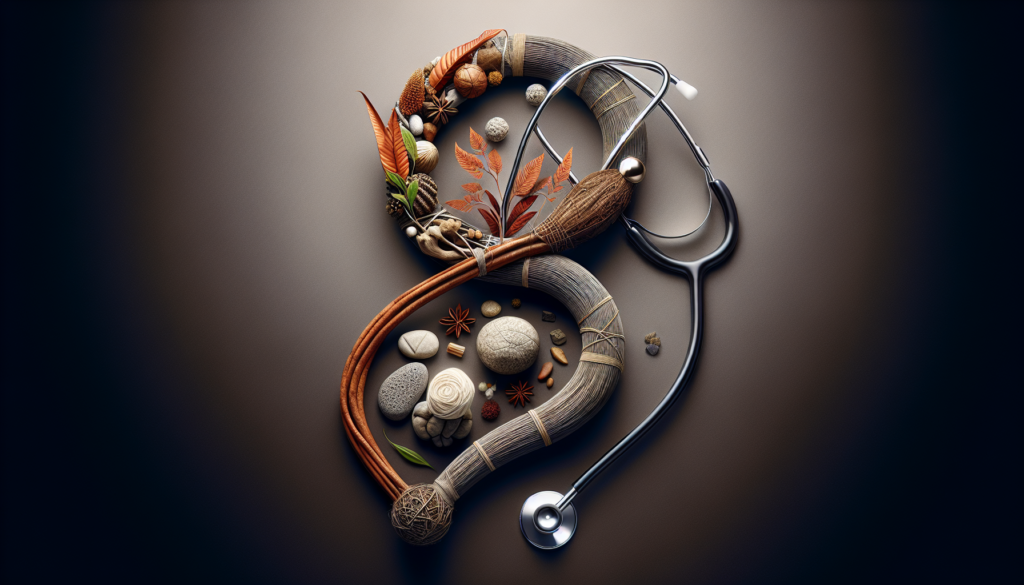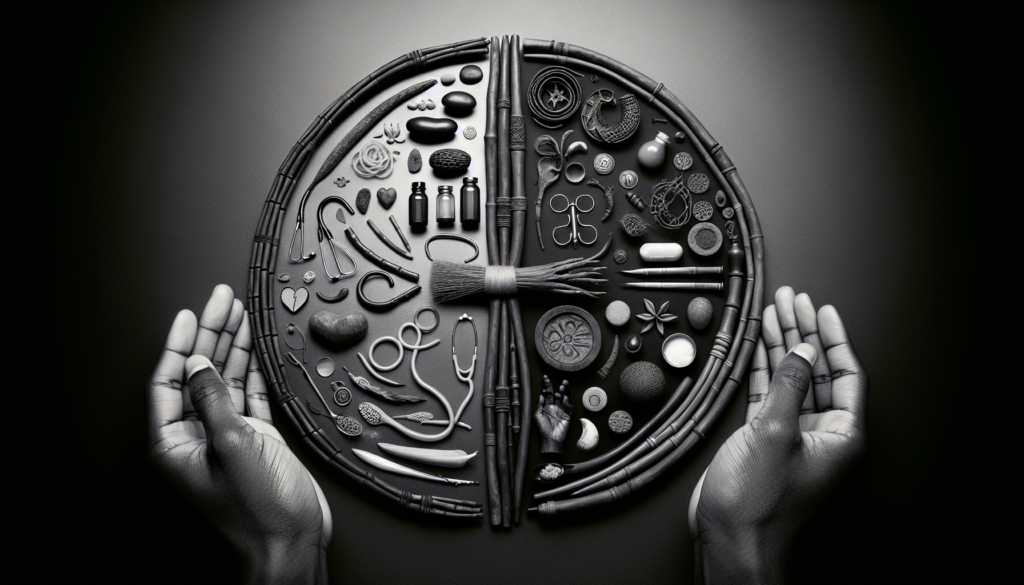Have you ever wondered how traditional African medicine compares to Western approaches? In this article, we’ll explore the fascinating differences between these two systems of healing. From the ancient wisdom passed down through generations in African communities to the scientifically based practices of Western medicine, understanding the disparities can provide valuable insights into the diverse ways people have sought to achieve wellness throughout history. Let’s embark on a journey to uncover the distinctive characteristics of traditional African medicine and its distinctions from Western approaches.
Holistic Approach
Traditional African medicine takes a holistic approach to healthcare, focusing on the interconnectedness of the body, mind, and spirit. Unlike Western medicine, which often treats symptoms in isolation, traditional African medicine views the individual as a whole person with a complex web of physical, mental, and spiritual elements. This comprehensive understanding guides the diagnosis and treatment process, addressing not only the physical symptoms but also the underlying imbalances that may be causing them.
Beliefs and Spirituality
A key aspect of traditional African medicine is the incorporation of spiritual elements into healthcare practices. Beliefs and spirituality play a vital role in the healing process, with a recognition of the powerful influence of ancestors and spirits. Traditional African healers believe that these spiritual entities can guide and assist in restoring balance and harmony within the individual. They may use rituals, prayers, and offerings to honor and communicate with ancestral spirits, seeking their support and intervention in the healing journey.
Herbal Remedies
The use of medicinal plants is a central pillar of traditional African medicine. Herbal remedies are relied upon for their healing properties and therapeutic effects on the body. Traditional healers have extensive knowledge of the local flora and are skilled in identifying and preparing medicinal plants to address various health conditions. Emphasizing prevention and balance, herbal remedies are often used not only to treat specific ailments but also to maintain overall wellness. This natural approach to medicine aligns with the belief that the body has the capacity to heal itself when given the necessary resources and support.
Diagnosis and Treatment
In traditional African medicine, diagnosis goes beyond identifying symptoms and delves into understanding the underlying causes of illness. Traditional healers evaluate not only the physical symptoms but also consider the mental, emotional, and spiritual aspects of the individual. By recognizing the interconnectedness of these elements, they can develop a comprehensive picture of the person’s health and determine the necessary course of treatment. The focus is on treating the underlying imbalance rather than just alleviating the symptoms, promoting long-term healing and wellness.
Traditional Healers
Traditional African medicine is guided by experts known as traditional healers, who possess extensive knowledge and skills in traditional healing practices. These healers undergo rigorous training and are often mentored by experienced practitioners, passing down knowledge from generation to generation. Their expertise encompasses a deep understanding of medicinal plants, spiritual rituals, and traditional techniques for diagnosis and treatment. Traditional healers play a significant role within their communities, serving as trusted healthcare providers and guardians of indigenous healing practices.
Community Engagement
Community engagement is a fundamental aspect of traditional African medicine. Care is not limited to the individual seeking treatment but extends to the entire community. Involving community members in the healing process fosters a sense of belonging, support, and collaboration. Traditional healers work closely with the community, organizing group healing ceremonies, sharing knowledge, and providing holistic healthcare services that address the unique needs of the population. This community-oriented approach not only enhances the effectiveness of treatment but also strengthens social cohesion and support networks.
Accessibility and Affordability
Traditional African medicine is widely available in local communities, ensuring accessibility for patients. Traditional healers are typically embedded within their communities, making their services easily accessible to those seeking treatment. The proximity of traditional healers to the people they serve eliminates barriers related to distance and transportation, ensuring that healthcare is within reach for individuals who may not have access to Western medical facilities. Furthermore, traditional medicine tends to be more affordable compared to Western approaches, allowing individuals with limited financial resources to receive the care they need.
Cultural Considerations
Respect for cultural beliefs and practices is a fundamental tenet of traditional African medicine. The cultural context of the individual is considered throughout the healing process, with traditional healers recognizing the importance of cultural beliefs in their patients’ well-being. Traditional African medicine seeks to integrate traditional and modern medicine, appreciating the value of both approaches. By acknowledging and respecting cultural practices, traditional healers are able to provide healthcare that is sensitive to the individual’s beliefs and promotes a sense of cultural identity and pride.

Education and Regulation
Traditional healers acquire their knowledge and skills through a combination of formal and informal training. Apprenticeships and mentorship are common pathways for aspiring healers to learn from experienced practitioners. Formal education programs have also been developed to ensure the preservation and transmission of traditional healing practices. Additionally, efforts have been made to regulate and recognize traditional practices, ensuring the safety and quality of care provided by traditional healers. This recognition helps bridge the gap between traditional and modern approaches to healthcare and highlights the significance of traditional African medicine within the broader healthcare system.
Scientific Validation
Traditional African medicine is increasingly being recognized and studied for its efficacy and safety. By combining traditional and scientific approaches, researchers are exploring the potential benefits of traditional healing practices in a rigorous and evidence-based manner. Scientific validation is crucial in increasing understanding, acceptance, and integration of traditional African medicine into mainstream healthcare systems. Research on medicinal plants, traditional treatment methods, and the overall effectiveness of traditional healing practices contributes to the body of knowledge and enhances the credibility of traditional African medicine as a valuable healthcare option.
In conclusion, traditional African medicine differs from Western approaches through its holistic view of the individual, the incorporation of spiritual elements, the reliance on herbal remedies, the comprehensive diagnosis and treatment process, the role of traditional healers, the engagement of the community, the accessibility and affordability of care, the respect for cultural beliefs, the emphasis on education and regulation, and the ongoing scientific validation. This rich and diverse healthcare system holds immense potential in complementing and enhancing Western medicine, ultimately leading to more comprehensive and inclusive healthcare for individuals and communities alike.



